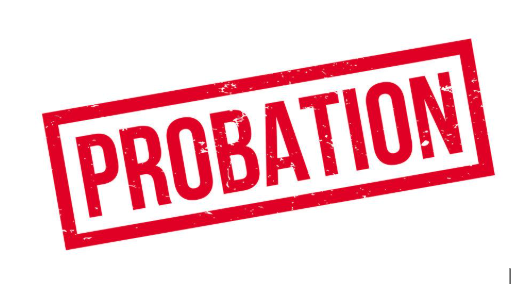Probation is an alternative to being locked up in jail or prison. Instead of serving time behind bars, you’re given a chance to stay out in the community and show that you can follow the rules.
However, probation is not a free pass. It comes with strict conditions that you must meet; if you fail at them, the consequences might be even worse than the original sentence.
There are two main types of probation violations, and if you commit any of them, the judge can decide a few different things after the hearing. They might:
- Issue a warning and let you continue your probation.
- Change your probation terms and make them stricter.
- Extend your probation for a longer period.
- Send you to jail for a short time (up to 30 days).
- Revoke your probation completely, meaning you’ll have to serve your original sentence in jail or prison.
Common Violations of Probation
Here are some of the most common ways you could violate your probation:
Missing Appointments with your probation officer
If you’re on supervised probation, one of the biggest things you have to do is meet with your probation officer regularly. These meetings are mandatory. If you miss an appointment, even if it’s for something seemingly minor, like a scheduling conflict, it’s still considered a violation.
Missing these appointments shows the court that you’re not taking your probation seriously, and that can lead to some serious consequences.
Missing a court hearing
You might be required to attend a court hearing during your probation to check in on your progress. If you fail to show up for these hearings, it’s a serious violation.
Not only is it disrespectful to the court, but it can also make it harder for you to stay out of trouble.
Courts take these hearings very seriously and skipping one could lead to a bench warrant for your arrest.
Not paying fines or restitution
As part of your probation, you might be ordered to pay fines or restitution. This means paying money either to the court or to a victim of your crime. If you fail to make these payments on time, it can be considered a violation.
Courts are not lenient about missed payments, especially if they were part of the original probation agreement. Missing payments can lead to new charges and more penalties.
Not completing community service
If your probation involves community service, you’ll need to complete a set number of hours in a given period. If you don’t do the required service, you’ll violate the terms of your probation. This is a pretty straightforward violation, and it’s easy to avoid if you stay on top of the hours you’re supposed to complete.
Visiting certain places or associating with certain people
One of the conditions of your probation might be staying away from specific places or people, especially if those places or people are connected to criminal activity.
For example, if you’ve been convicted of a gang-related crime, your probation might require you to stay away from other gang members or certain neighborhoods. If you break this rule, it’s a serious violation of your probation.
Not being employed or in school
In some cases, your probation might require you to either get a job or enroll in school. If you fail to do this, it’s considered a violation. Being productive and working towards a better future is often a part of the terms of probation, and not doing this shows you’re not taking the opportunity seriously.
Committing another crime
This one is probably the most obvious violation. If you commit another crime while on probation, you’re automatically violating the terms of your probation. Even if it’s something small, like a traffic ticket, it can still be considered a violation.
Committing a new crime shows that you haven’t learned from your previous mistakes, and the court will take that very seriously.
Articles published under the Editorial Desk byline may include material from various sources and are reviewed internally to ensure clarity, factual consistency, and compliance with the site’s editorial standards. Content is published for general informational purposes only and follows applicable content and publishing guidelines




